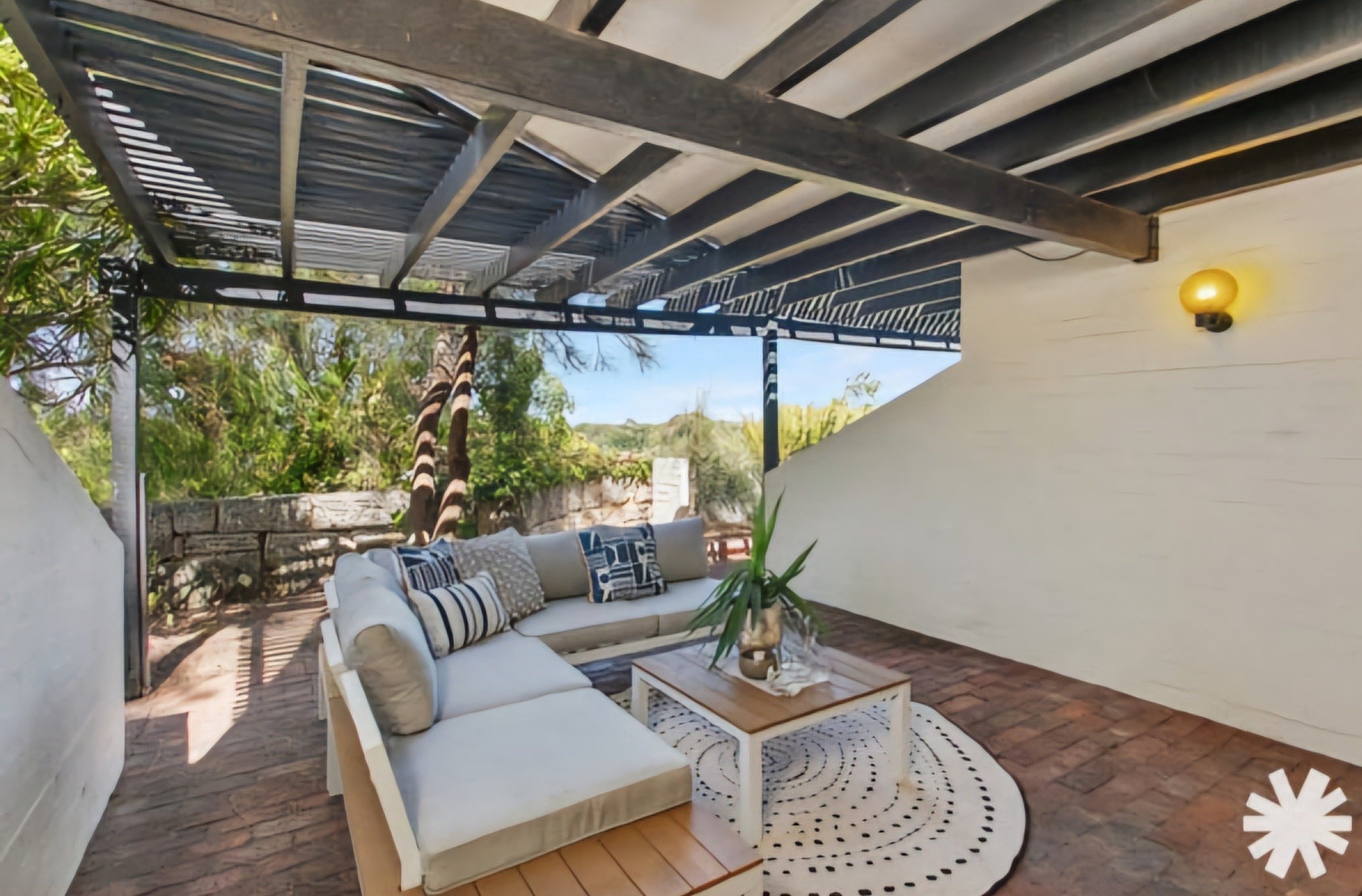No Place Like Home
Since we last spoke, there have been many developments, but little concrete progress on the medical front. Frustrations continue to arise with the apathy of the public healthcare system — despite it being among the best in the world — and life goes on in the background, deepening and growing richer around us.
Monday began with a blessedly brief torso CT scan through a private clinic. I was flushed with a tracer fluid, which rapidly spreads warmth through the body and creates an acute sense of nausea for a few seconds before fading. They took their pictures, and we headed home.
There was tension in the air that day — but not for the reason you might think. On Sunday, we had returned to the South Perth property we were looking at the day before. The location was ideal, but we were plagued by doubts about the interior and whether we would be comfortable there. At the second home open, the agent had advised us that an offer had been made above the original range; but that the prospective buyer was in a “unique financial situation.” He suggested that a cash offer of a similar amount would be taken seriously, adding that any offer would need to be submitted before the end of the day, as he would be meeting with the client the following morning to make a decision.
We were in agony, flip-flopping more than a pair of Aussie thongs over what to do.
We should buy it!
We shouldn’t.
It’s a lot of money!
It’s the best we’ve seen, in the best location.
The bedrooms are small!
We would be living in the living areas — the bedroom is for sleeping.
Sneaky peeky
Eventually, we decided to contact Diane — the agent who had extended an offer of aid last week, after we had attended a viewing of one of her apartments. I called her up and explained our situation. She advised that, as an agent, she would prioritise a cash offer above a complex settlement every time. Her advice? Make an offer on the lower end, and state that it was valid for twenty-four hours. We did as she advised with much trepidation, and waited.
That brings us to the following afternoon. We had walked over to the beach, and were laying in the sand (with the phone on loud next to us) when the call came. It was the agent — our offer had been accepted! It turned out that the other offer had been eight percent more than ours, but that it was contingent on the settlement of an estate, with a timeline of ninety days or more. In the end, the owner decided they preferred the simplicity and certainty of a quick settlement.
We ended the call and lay side by side on the sand, stunned into silence. What did it mean? It was hard to say. It meant a lot of things — settlement, renovations, buying furniture, setting up a life. It meant the end of one chapter and the start of another. It would mean new challenges, but also new joys: the joy of creating our first joint home together and building a new lifestyle for ourselves from scratch. It would mean stability and privacy, and a home base to work on and work from. A quiet, mixed excitement began for us that day — an excitement we shared in a phone call with Diane, whose advice had saved us a tidy sum and helped us to secure our new home.
Sneaky peeky number two
…
The rest of the week was a balance of social outings and medical appointments. There were many special moments: walking my favourite trail with Stefan as we discussed life and philosophy; rushing into the surf with a group of guys after a 5:30am meditation at the beach; joining a salsa class with Alessandra; celebrating Mumba’s birthday at Cottesloe Beach; a night playing Catan and feasting on smoked meats with a group of my closest friends. I felt so well loved — and it was a good thing, too, for the medical news was not so welcome.
There were two appointments back-to-back on the Thursday — one, an initial consultation at the hospital to discuss the cyberknife process; the other, an appointment we’d made with a private specialist, who could provide more detailed knowledge about the clinical trial. We sat down in the waiting room at the back, and forty-five minutes passed before we were ushered in. It was a registrar who saw us — though we had previously been assured that we would see the doctor himself. Fortunately, the registrar was thorough, attentive and empathetic. Through him, we learned that the cyberknife treatment would not be a single event. Rather, it would be five separate sessions on alternating days; ten days in total. Furthermore, the machine was being serviced, and the waitlist had been pushed back accordingly. Even when the machine was ready to use, I’d still be required to have another CT scan of the abdomen; plus an updated liver MRI before I could get in for my first session. This pushed back the timeline far beyond the two weeks we’d been told. As if all this wasn’t bad enough, the most recent CT scan results were in, showing that the tumour had grown from 2.7cm to 3.5cm in three weeks. As the registrar told me all these things, I could feel the sand in the hourglass falling, the risk of growth and metastatic spread increasing with every delay. It was as though they didn’t appreciate that if I didn’t have the treatment soon, we might be dealing with a lot more than one tumour.
The specialist I was meant to meet with leapt into the room close to the end of the session. He was a young guy, with a thick, trimmed beard and a cheshire cat smile that never left his face. He confirmed the registrar’s timeframes, and clearly had no knowledge of the most recent scan and identified growth until the registrar mentioned it. I explained the tension and stress we were feeling, with the urgent need for treatment not being reflected in the actions being taken.
”I understand your frustration,” he said, with his cheshire cat grin.
We left feeling sad and dissatisfied, but there was no helping it for the time being. We had another appointment to get to, after all. I was surprised to hear Alessandra voice her dislike of Dr. Cheshire Cat, as she rarely has anything bad to say of others, but it was hard not to agree with her.
The next appointment was worth going to. It’s not that it resolved anything — it’s that, for the first time in a long time, we felt listened to and taken seriously by a seasoned professional. The specialist we talked to was one of a handful of oncologists in Australia with a depth of understanding and direct involvement with patients suffering from uveal melanoma. He understood our situation, and talked us through the intervention we’d been recommended. When it came to discussing the clinical trial, he flagged an issue: if cyberknife were used to remove the tumour, I may not be eligible for the trial, due to the resultant lack of measurable disease. He asked me which I would pick, if I had a choice: a trial that helps 55% of patients, or the removal of the tumour. When I answered with the latter, he nodded in agreement. It may be, he told us, that the options post-cyberknife are either surveillance (waiting to see if another tumour grows), or the commercially available immunotherapy offered by the hospital. However, if I went ahead with immunotherapy as a follow-up treatment, I may no longer be a candidate for the trial, having had a different systemic therapy. We talked about each option for the better part of an hour, and left with a dawning realisation of the ramifications and consequences of each and every medical choice we would make over the coming months.
…
There you have it; one more week in the journey. Let’s review what lessons we can take forward in the weeks to come:
Ask advice from people with the knowledge and expertise needed to answer your questions.
Quality time with loved ones is time well spent, no matter what else is going on.
Public healthcare is great, but you’re still working through a system, and the system has its steps and processes that do not necessarily factor in your needs. Know when to go through the process and when to look elsewhere.

